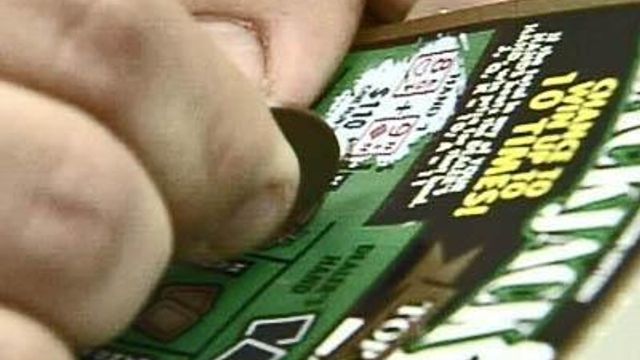Local News
N.C. Court of Appeals Hears Lottery Lawsuit
Attorneys questioning the the legality of the North Carolina Education Lottery made their case before the state Court of Appeals Tuesday.
Posted — UpdatedRALEIGH, N.C. — Is the North Carolina Education Lottery a tax, and was the law making it legal in the Tar Heel state passed unconstitutionally?
State Superior Court Judge Henry Hight, in March 2006, ruled against a lawsuit challenging the lottery's legality, saying the bill was legally passed, because it is not a tax and no one is forced to play the lottery.
But Robert Orr, former executive director of the North Carolina Institute of Constitutional Law and one of the lawyers pressing the challenge to the lottery, that it is indeed a tax, because a portion of the proceeds go to education.
"The fundamental criteria is that the revenue is going to the general benefit of the public," Orr, the taxpayers' lawyer, told the three-judge panel of the state Court of Appeals. "The lottery was sold as a revenue-raising proposition to raise money for education in North Carolina."
At issue in the case is how the General Assembly passed the law and whether it was constitutional. North Carolina law requires votes on separate days for laws that lead to higher taxes or borrow against the state's credit.
Attorneys for the state have argued that the lottery law does neither and that both chambers' votes were legal. (In April 2005, the House approved the lottery bill in a single day by a vote of 61-59. In August of the same year, the Senate needed a tie-breaking vote from Lt. Gov. Beverly Perdue for the measure to pass 25-24.)
The state takes at least 35 percent of ticket revenues -- projected to reach $350 million for the fiscal year ending June 30 -- and earmarks them for education initiatives, including class-size reduction, pre-kindergarten programs, school construction and college scholarships. It's that use of the money -- for such a broad concern as education -- that Orr and his clients consider a tax.
The bigger question, however, for appeals court judges Tuesday was what happens if the lottery, which recently reached the $1 billion sales mark, is ruled unconstitutional.
Court of Appeals Judge James Wynn questioned whether the ruling would harm contracts in place with private businesses to operate the lottery. Sales could stop and winnings could be returned, he theorized.
"How can it be done without having all chaos break out?" Wynn asked.
Orr, who is also a GOP candidate for governor, said the court could delay enforcing the ruling, allowing lottery sales to continue until the General Assembly passes a new lottery law.
The plaintiffs who appealed include the Wake County Taxpayers Association and the North Carolina Family Policy Council. Lawyers for the nonprofit North Carolina Institute for Constitutional Law are representing the taxpayers who sued.
The appeals panel, which also included Judges Ann Marie Calabria and Robert Hunter, didn't say when they would rule, but it likely won't be for a few months.
If the court overturns Hight's decision, it is possible lawmakers would have to vote again on the lottery. If the court upholds the ruling, the case is likely to go to the state Supreme Court.
• Credits
Copyright 2024 by WRAL.com and the Associated Press. All rights reserved. This material may not be published, broadcast, rewritten or redistributed.





